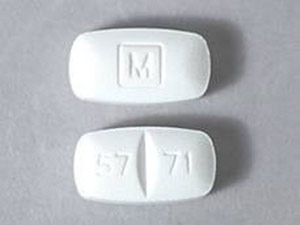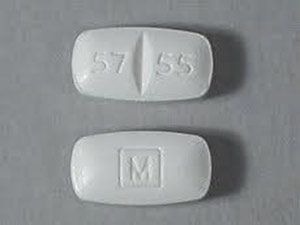Buy Methadone Online
Showing all 2 results
What is Methadone
Methadone, available as Methadose and Dolophine, is an opioid medication (sometimes narcotic). It is a synthetic opioid agonist drug that helps opioid maintenance therapy during opioid dependence and chronic pain management. It is helpful as an analgesic in chronic pain, frequently in rotation with other opioids.
One can achieve detoxification using Methadone within a month, or one can gradually get it done as long as six months. The pain-relieving effect lasts for six hours after a single Methadone dose.
For the treatment of opioid use disorder, doctors recommend using it as maintenance therapy or, in a short period, detoxification to manage opioid withdrawal symptoms.
Important Information
Do not share opioid medication with someone else, especially someone with a past of drug abuse. Misuse of Methadone can cause addiction, death. It is against the law to sell or give away this opioid drug. Do not suddenly stop taking this drug. Before taking the dose, talk to your doctor.
Methadone works on pain receptors in the body and reduces the pain you feel. It may replace other habit-forming opioid drugs. A single dose of this medication has a rapid effect; it can take five days of use to get the maximum impact.
Dispose of the remaining drug carefully. If someone is using this drug improperly or accidentally, just one dose can cause death.
What to know before taking Methadone?
To ensure Methadone is safe for you, tell each of your healthcare providers if you ever had:
- Sleep apnea, breathing problems;
- Long QT syndrome (to any family member), heart problems;
- Mental illness, or drug or alcohol addiction;
- A brain tumor, head injury, or seizures;
- Urination problems;
- Kidney or liver disease;
- Problems with your pancreas, gallbladder, or thyroid
Older adults, malnourished or debilitated, are more likely to have severe side effects. In addition, using opioid medicine for the longer term may affect the ability to have children (fertility) in men or women. However, it is still a question whether opioid effects on fertility are temporary or permanent. You should avoid using Methadone if you are allergic to it, or if you have:
- A blockage in your intestines or stomach
- Asthma (severe) or breathing problems
Avoid breastfeeding because Methadone can pass into the breast milk and cause breathing problems, drowsiness, or death in a nursing baby. If you are using an opioid medicine during pregnancy, your baby could become drug-dependent. It can cause life-threatening withdrawal symptoms in the newborn baby. An opioid-dependent baby may need treatment for several weeks.
How to take Methadone?
Use Methadone (oral) by mouth. Injection of Methadone is under the skin or into a muscle or infuse into the vein. Your healthcare advisor will teach you to use this injection by yourself. Measure carefully liquid drugs. Use a dosing syringe. Dissolve the dispersible drug tablets in orange juice, water, or other citrus-flavored beverage. Do not use Methadone liquid or tablets to make a mixture for injection into your vein. It may result in death.
Follow your doctor’s prescription, advice, and all the prescription labels or instructions. Never use Methadone in smaller or copious amounts than prescribed. If you are feeling an increased desire to use this medicine, then inform your doctor.
When your doctor gives you Methadone under a treatment program for drug addiction or detoxification, the doctor may recommend taking the dose by a family member or other caregiver. Store Methadone away from heat and moisture at room temperature. Keep track of your drug. Be aware of misusing it or taking it without a prescription because Methadone is a drug of abuse.
Methadone dosage
The initial adult dosage for pain is 2.5 mg to 10 mg IV within every 8 to 12 hours for an opioid non-tolerant patient.
Methadone side effects
The use of Methadone may cause nausea, constipation, vomiting, dizziness, lightheadedness, drowsiness, dry mouth, or sweating. Some of the aftereffects may reduce after using this drug for a while. However, if any of them persists or worsens, tell your medical healthcare provider immediately.
A severe allergic reaction to Methadone is rare. However, take medical help if you notice any of the following symptoms: severe dizziness, rash, trouble breathing, itching, or swelling in your face, throat, lips, or tongue. Take urgent medical help if you have allergic reactions due to the use of Methadone. Symptoms of an allergic reaction include issues with breathing, hives, swelling of your face, throat, lips, or tongue.
Seek medical help if you have serotonin syndrome symptoms, such as agitation, fever, hallucinations, sweating, fast heart rate, shivering, twitching, muscle stiffness, nausea, loss of coordination, vomiting, or diarrhea. Opioid medication can stop or slow your breathing, and death may occur. An attendant should immediately go for medical attention if you have blue-colored lips, slow breathing with long pauses, or if you are hard to wake up.
Call your doctor instantly if you have:
- Severe constipation
- Breathing that stops during sleep, shallow or weak breathing
- Fluttering in your chest, fast or pounding heartbeats, shortness of breath
- Feeling lightheaded
- Vomiting, nausea, dizziness, loss of appetite, worsening weakness or tiredness
Common side effects of Methadone include
- Nausea, vomiting;
- Dizziness, drowsiness;
- Increased sweating; or
- Swelling, redness, or pain at the spot of injection
It is not a complete list of side effects, and others may occur. Follow your doctor’s medical advice regarding side effects. Report side effects to FDA at 1-800-FDA-1088.


